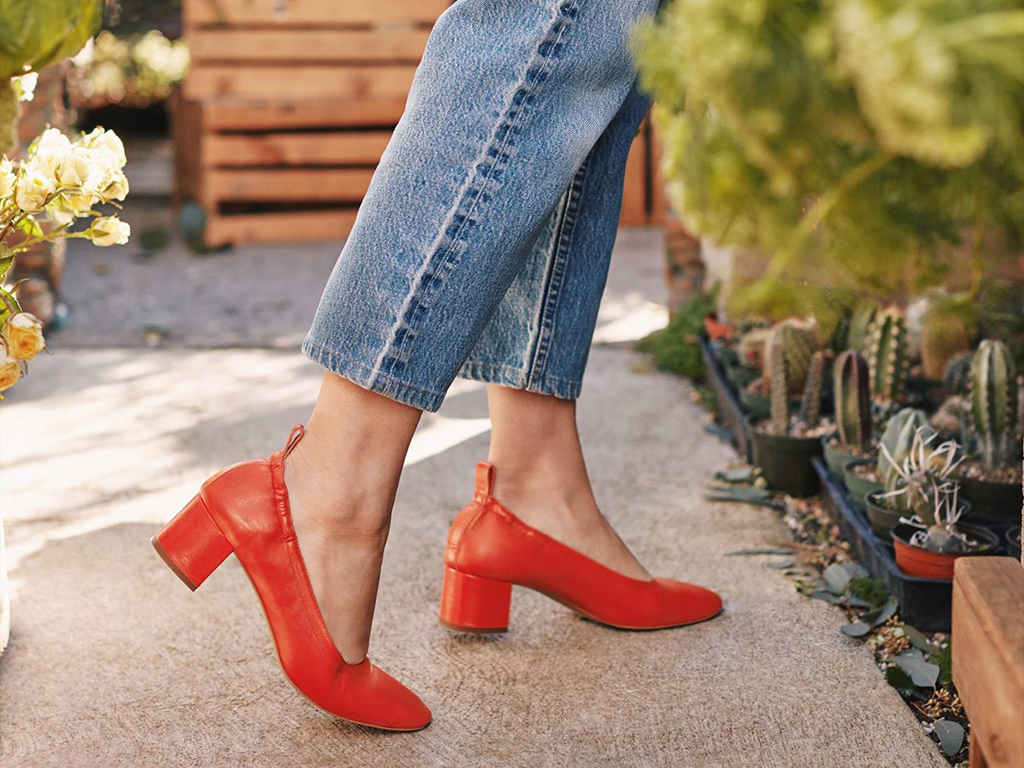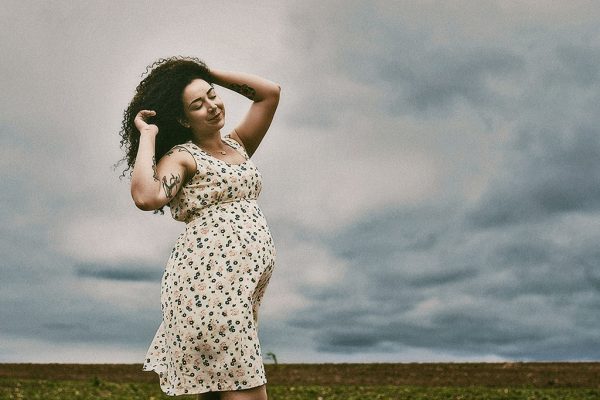Ethical fashion is taking a turn in the spotlight and challenging previous ideas of fashion production in a radical and global way.
To take advantage of this topical subject, we need to be asking the right questions, talking to the right people, and educating those around us. One of the biggest factors driving the phenomenon we call ‘fast-fashion’ is lack of education.
The disconnect between clothing and the people who make it divides our world, and we have become conditioned to expect clothing to appear as if magically on shelves.
Asking fashion retailers questions not only educates ourselves, but it is one way for us (the consumers) to push for change.
If simply asking ‘who made my clothes’ is not enough to meet your values, here are four key questions to ask fashion retailers when investing in new clothes.
Image credit: Everlane

1. How Is The Fabric Produced?
From organic cotton to sustainably sourced tencel, it is important for us to know both what our clothes are made of, as well as how these fibres were farmed. For example, fair trade cotton ensures that the farmers who produced the cotton were paid a fair wage for their product and hard work. Additionally, organic cotton is grown without any chemical aid, as opposed to commonly produced cotton which involves chemical pesticides and fertilisers. Perhaps you are a healthy eater and conscious about what you put into your body, but what you put on your body counts too.
2. Where does the waste in your factory go?
According to Reverse Resources, the world creates an average of 40 billion square metres of leftover materials per annum. That’s an insane amount of waste. An ethically conscious clothing retailer will aim to reduce and reuse their textile waste, decreasing or eliminating their landfill contribution. If a fashion retailer is truly committed to participating in fair-fashion, this is a question that they should have considered a long time ago.
We need to become more strategic in our questions, think tactically about how to take advantage of this ethical fashion movement, and make it known that we are no longer going to put up with the monster of fast fashion.
3. Are the people in the entire supply chain paid a living wage?
When you look at a rack of t-shirts, identical in style and colour, it is very easy to think that they were made by machines. This is not the case. Every piece of clothing is touched by at least three people before it is put on the rack, and these people are almost always paid a wage that barely provides them with a means to feed themselves and their families. Asking this question brings up the fairness of a fashion retailer’s trading schemes and allows you to understand if the people who make the clothes are truly appreciated and rewarded for their skills.
4. Does your organisation support any local charities or give back to the environment?
Ethical fashion has less impact on the environment than fast-fashion and aims to uphold all humans involved in the process of making garments. However, no matter how ethical a company is in their processes and practices, there will always be some type of waste or environmental impact. To offset these negative bi-products, ethically conscious organisations are known to give a certain percentage of profits to a charity or organisation who works on protecting the environment. Even if a fashion retailer does not already do this, asking the question will not hurt anyone. If anything, the question will spark thoughts that may prompt them to start.
We need to become more strategic in our questions, think tactically about how to take advantage of this ethical fashion movement, and make it known that we are no longer going to put up with the monster of fast fashion.


